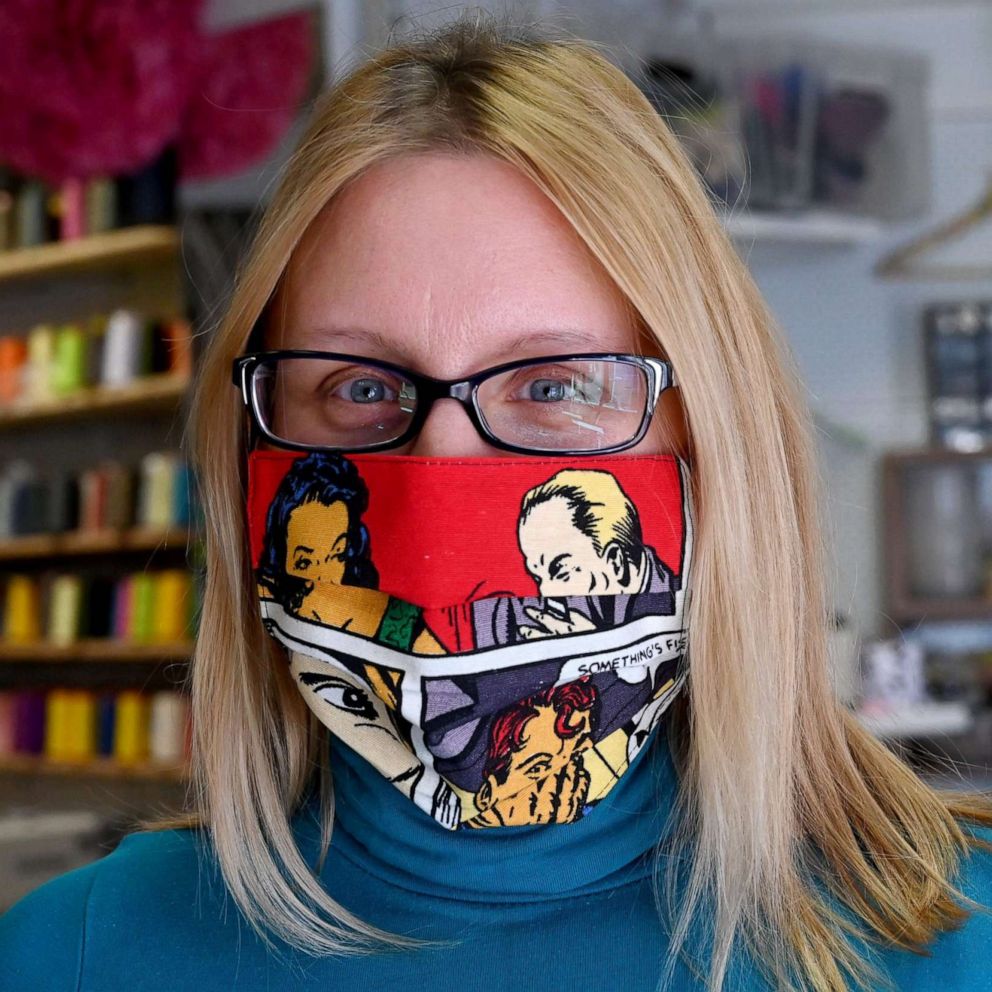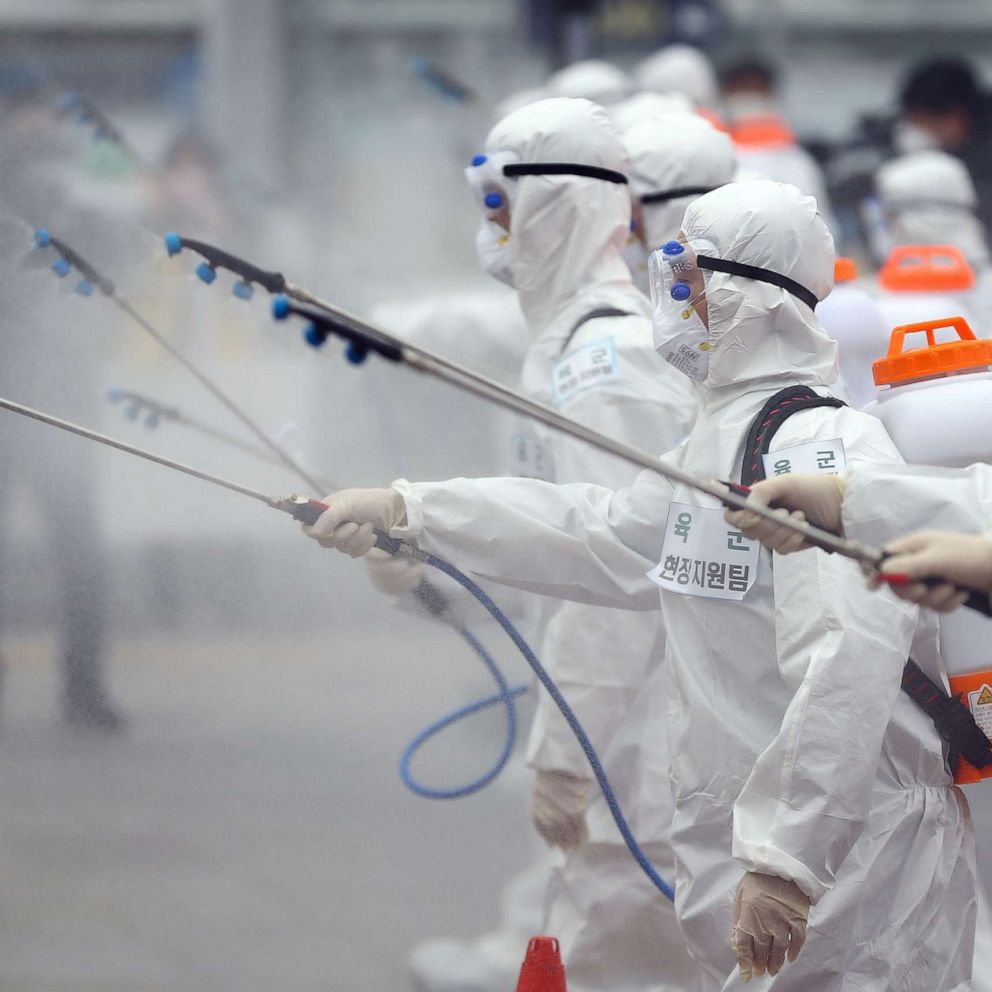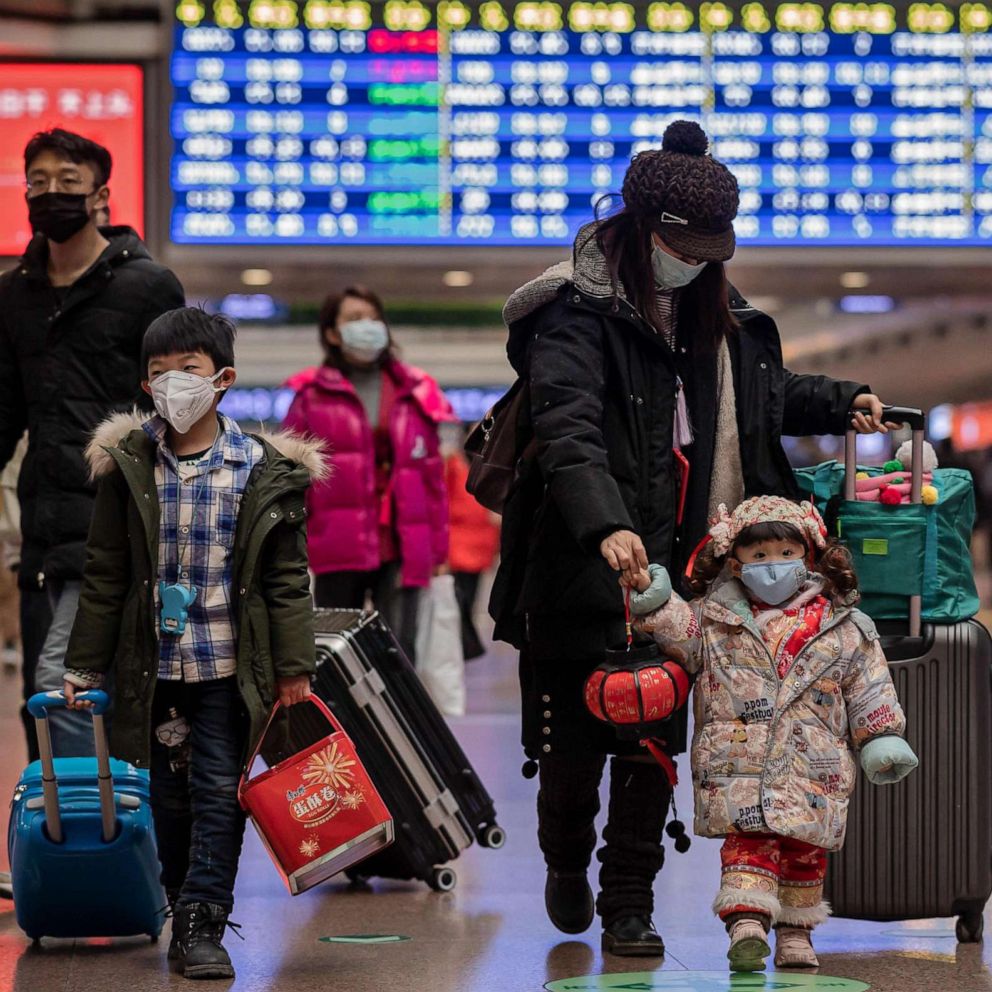Trump versus the doctors: When the president and his experts contradict each other
He says he's "not a doctor," but he doesn't hesitate to float medical theories.
Medical experts are bluntly pushing back against President Donald Trump's suggestion that exposure to sunlight or an injection of disinfectant might be treatments for the novel coronavirus -- the most recent example of doctors and the president contradicting each other.
They said what he was proposing was not only dangerous, but could be deadly.
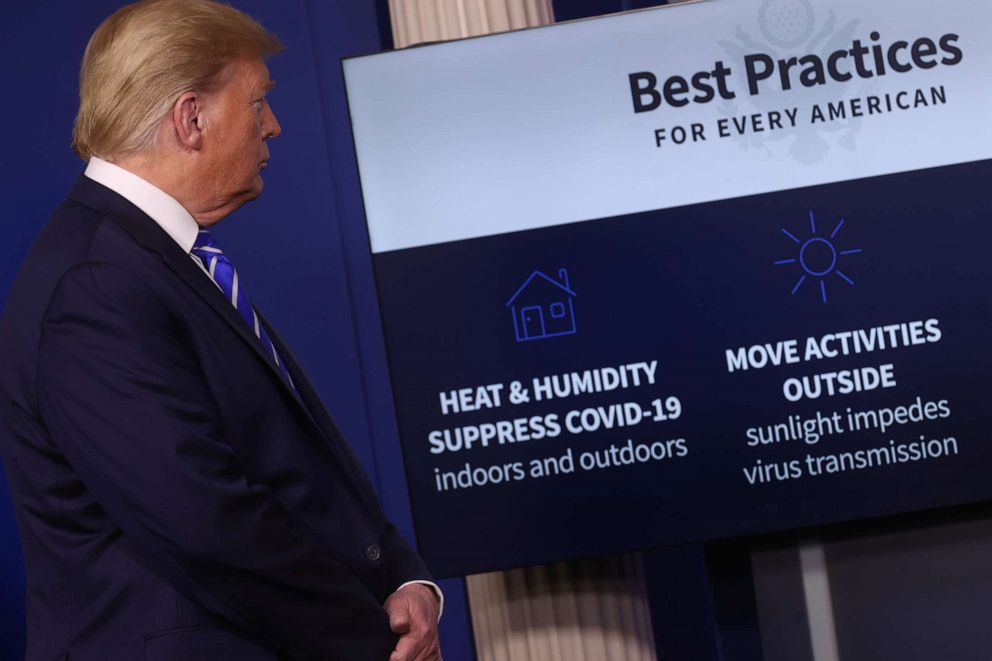
The White House coronavirus response coordinator, Dr. Deborah Birx, was more diplomatic Thursday night when Trump asked her, in all seriousness, whether had she heard about the potential of using sunlight or heat. Seemingly taken by surprise, she responded haltingly, "not as a treatment."
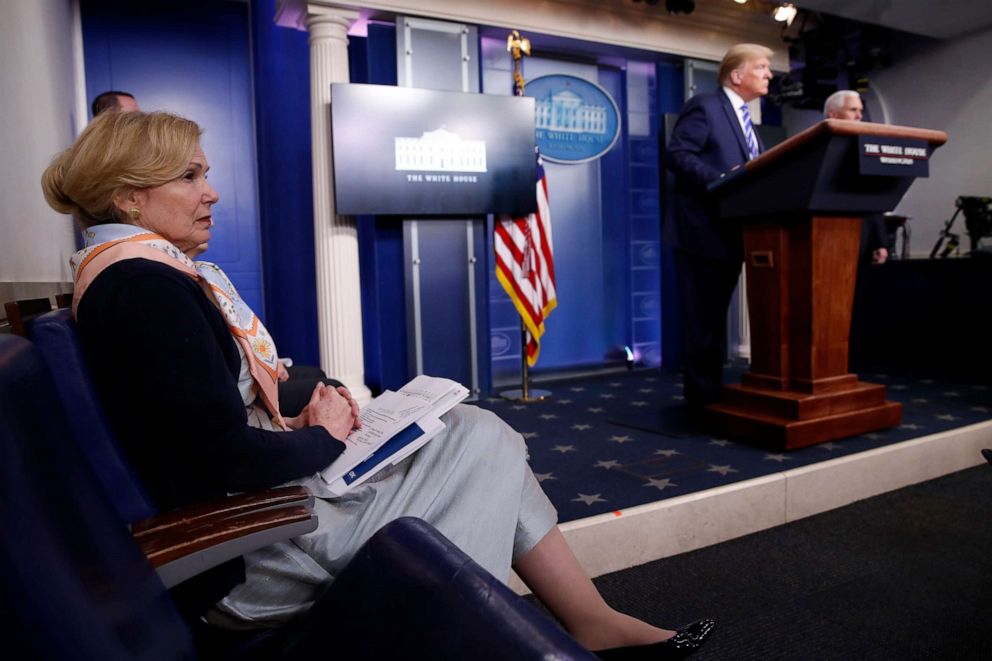
Some real-world fallout came Friday morning when a Maryland public emergency management agency said it had received about 100 calls about using disinfectants, prompting a warning that such products should never be put into one's body through injection, ingestion or any other route.
When promoting his ideas, the president has often said, "I'm not a doctor," even as he touts an unproven, even possibly dangerous treatment or cure -- and it can be awkward when Birx and other doctors on the coronavirus task force are asked to comment.
Here's a look at some of the most recent times President Trump has contradicted his medical experts or when they had to publicly contradict him.
Tune into ABC at 1 p.m. ET and ABC News Live at 4 p.m. ET every weekday for special coverage of the novel coronavirus with the full ABC News team, including the latest news, context and analysis.
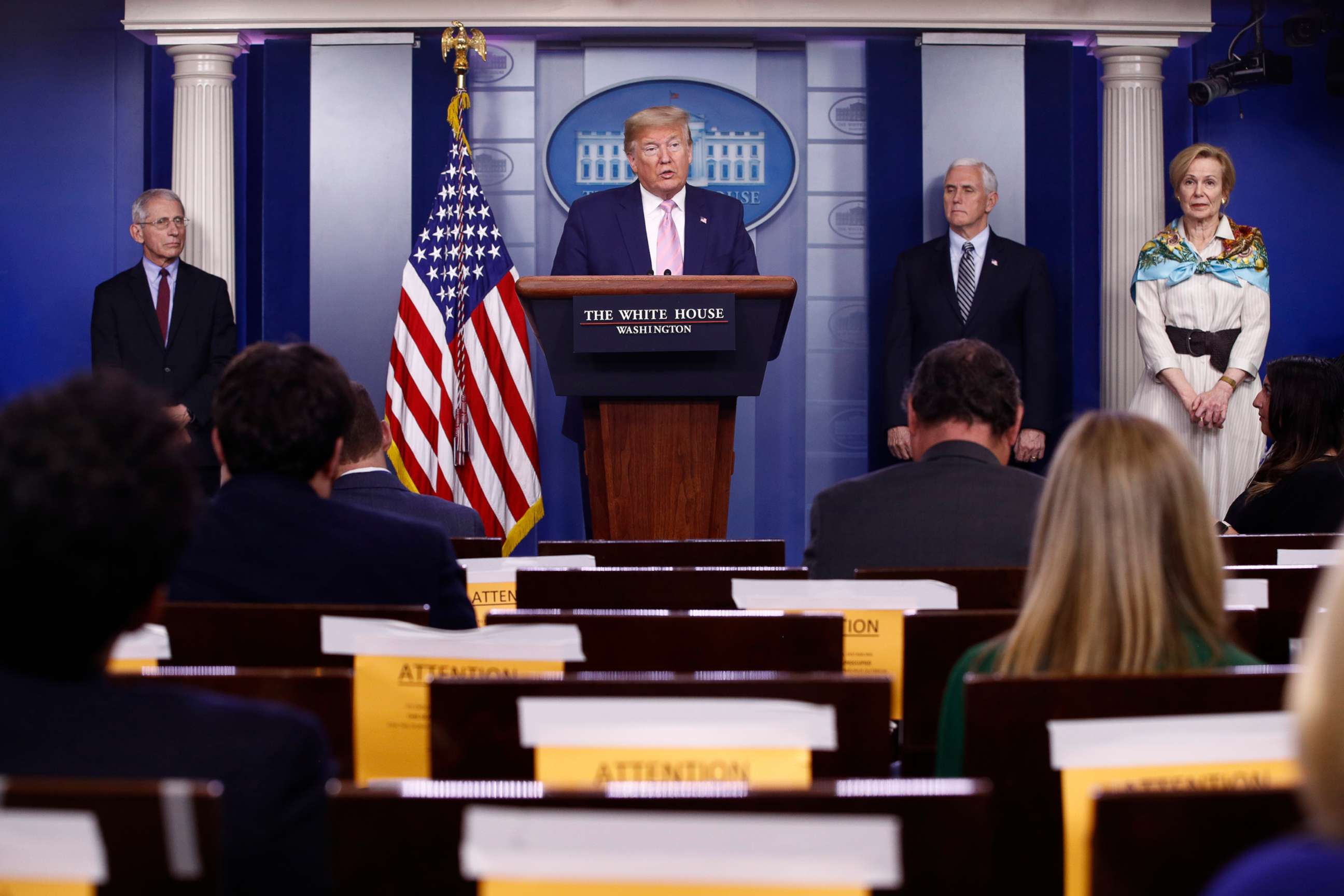
Trump disagrees with Fauci on testing capacity
The president openly disagreed with the government's top infectious disease expert, Dr. Anthony Fauci, who was not present at the April 24 briefing when it happened but told Time earlier the same day the U.S. wasn't ready with the level of testing needed to reopen the country as Trump wants.
Fauci: "I am not overly confident right now at all that we have what it takes to do that. We are doing better, and I think we are going to get there, but we are not there yet," Fauci told Time.
Trump: "I don't agree with him on that. No. I think we're doing a great job on testing. I don't agree -- if he said that, I don't agree with him."
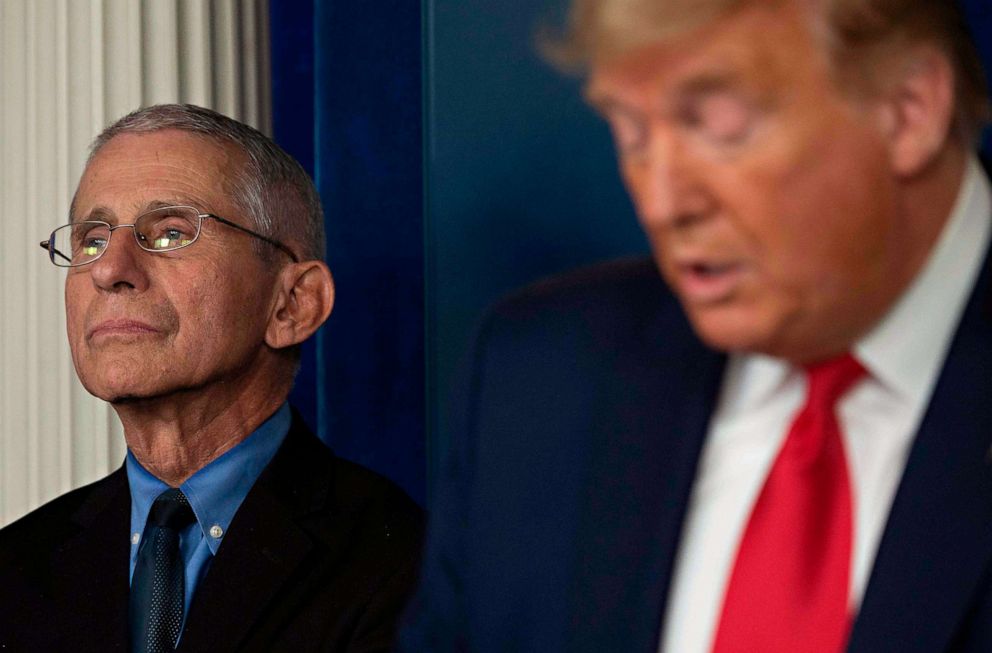
Trump disagrees with Redfield, Fauci on virus resurgence
President Trump has suggested several times the virus could "miraculously disappear," despite warnings from his own officials that it will almost certainly return in the fall -- perhaps even more strongly because it may coincide with flu season.
But it's a possibility the president does not seem to want to accept.
At the April 21 task force briefing, Trump said Centers for Disease Control and Prevention Dr. Robert Redfield was "totally misquoted" in a Washington Post article titled: "CDC director warns second wave of coronavirus is likely to be even more devastating." When asked directly by ABC Chief White House Correspondent Jonathan Karl, Redfield said "I'm accurately quoted" but added that "the headline was inappropriate."
Redfield: "There's a possibility that the assault of the virus on our nation next winter will actually be even more difficult than the one we just went through," Redfield told the Washington Post and repeated its "possibility" at the task force briefing. "We're going to have the flu epidemic and the coronavirus epidemic at the same time."
Trump: "You could have some embers of corona and a big flu system, and if they combine and come together, it's not great, but we will not go through what we went through for the last two months ... It might not come back at all. He's talking about a worst-case scenario where you have a big flu and you have some corona."
Fauci: "We will have coronavirus in the fall. I am convinced of that because of the degree of transmissibility that it has, the global nature. What happens with that will depend on how we are able to contain it when it occurs.
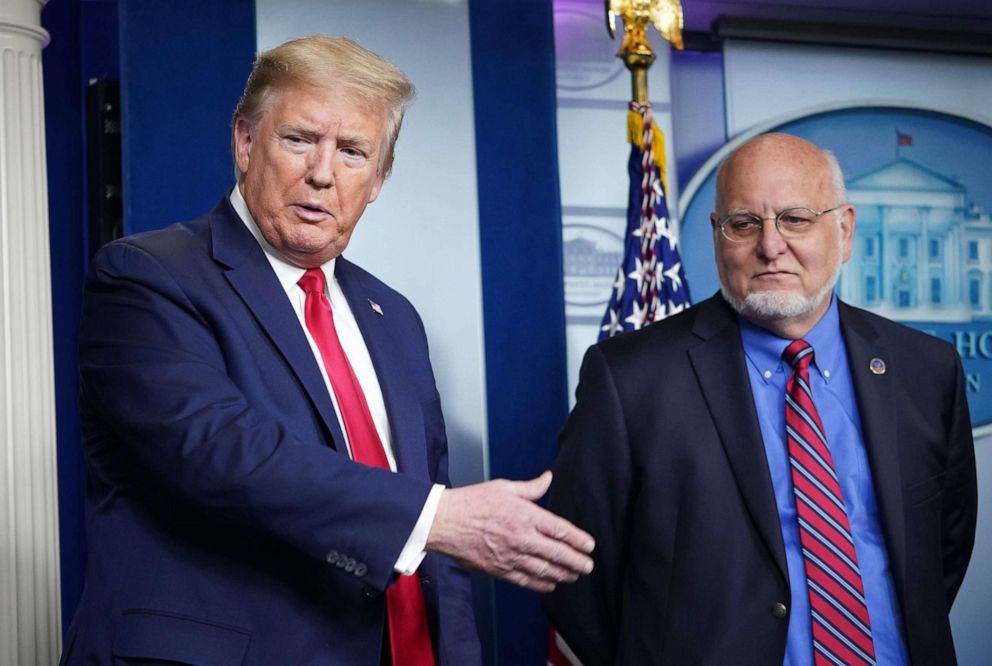
Trump pushes hydroxychloroquine, FDA says proceed with caution
President Trump had for weeks touted the promise of the anti-malarial drug hydroxychloroquine as a potential "game changer" in the treatment for COVID-19, while Fauci has cautioned that any signs of the drug's promise at this stage are purely "anecdotal." Even the Food and Drug Administration released a new statement April 24 urging caution.
TRUMP: "We bought a tremendous amount of... hydroxychloroquine, which I think is, you know, it's a great malaria drug. It's worked unbelievably, it's a powerful drug on malaria. And there are signs that it works on [coronavirus], some very strong signs," he said April 5.
FDA: "The FDA is aware of reports of serious heart rhythm problems in patients with COVID-19 treated with hydroxychloroquine or chloroquine, often in combination with azithromycin and other QT prolonging medicines. We are also aware of increased use of these medicines through outpatient prescriptions," an agency said in a statement. "Hydroxychloroquine and chloroquine have not been shown to be safe and effective for treating or preventing COVID-19."
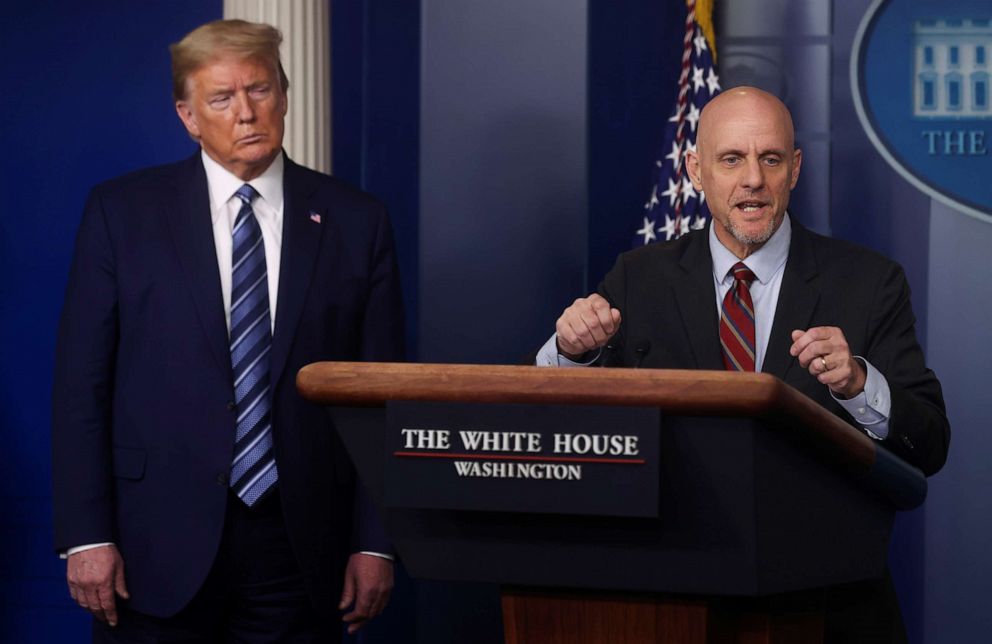
Trump pushes timeline of normalcy by summer, Fauci says virus sets the timeline, key model suggests waiting
As Trump said he envisions celebrations by Memorial Day and the Fourth of July and a growing number of states are looking to lift restrictions, Fauci has warned numerous times that until the virus is under control, a reopening of the country could backfire.
The president has strongly criticized GOP Gov. Brian Kemp of Georgia for reopening businesses without meeting the White House "gating criteria," but he has chosen not to intervene, leaving the public health decision to state and local officials.
Trump: "You see states are starting to open up now, and it's very exciting to see. I think It's very awe-inspiring. We are coming out of it, and we're coming out of it well," he said on April 23. "There is a pent-up demand in our country to get it back right where it was, and maybe even better. And that's what's going to happen."
Fauci: "Unless we get the virus under control, the real recovery economically is not going to happen, so what you do if you jump the gun and go into a situation where you have a big spike, you're going to set yourself back. So as painful as it is to go by the careful guidelines of gradually phasing into a re-opening, it's going to backfire," he told ABC News April 20.
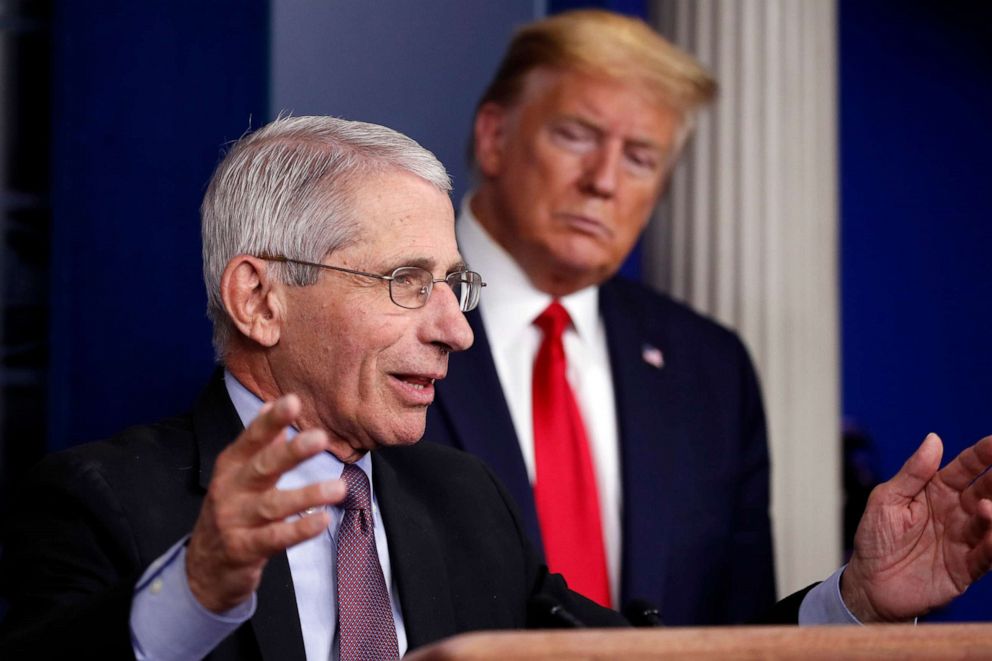
A key model from the University of Washington used by the White House is also now suggesting a dozen states -- including Georgia -- wait until at least June 8 to relax current measures.
What to know about the coronavirus:
- How it started and how to protect yourself: Coronavirus explained
- What to do if you have symptoms: Coronavirus symptoms
- Tracking the spread in the U.S. and worldwide: Coronavirus map
